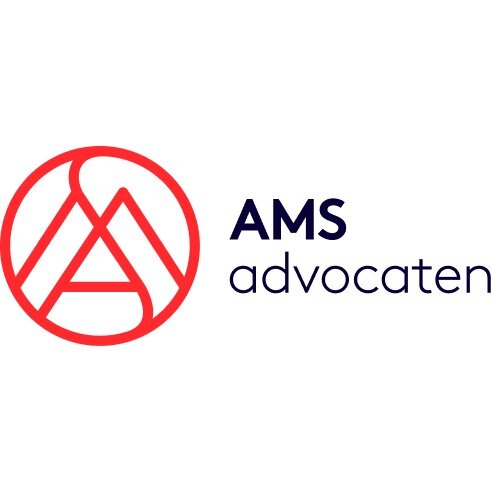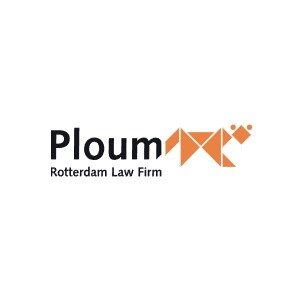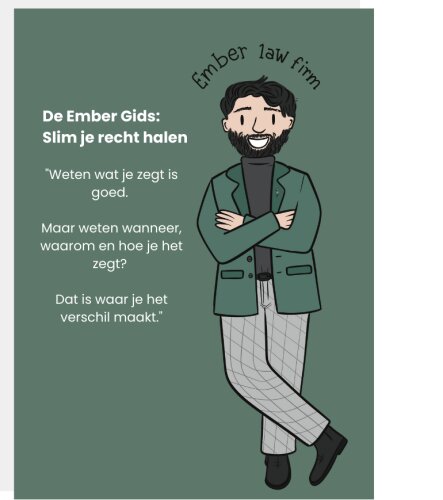Best Patent Lawyers in Netherlands
Share your needs with us, get contacted by law firms.
Free. Takes 2 min.
Or refine your search by selecting a city:
List of the best lawyers in Netherlands
About Patent Law in Netherlands
Patent law in the Netherlands is governed by both national laws and international and European treaties. The central piece of national legislation is the Dutch Patent Act 1995, which outlines the procedures, rights, and obligations for obtaining and enforcing patents in the Netherlands. Additionally, as a member of the European Union and the European Patent Convention (EPC), the Netherlands is subject to certain transnational regulations that influence how patents are registered and protected throughout Europe.
Why You May Need a Lawyer
There are several reasons why you might need legal assistance in the realm of patent law:
- Filing a Patent: Navigating the application process for a patent can be complex, requiring a thorough understanding of technical and legal standards.
- Patent Infringement: Legal advice is crucial if you believe someone is infringing upon your patent or if you are accused of infringing on someone else’s patent.
- Licensing and Agreements: A lawyer can help draft and negotiate licensing agreements or other contractual arrangements involving patents.
- International Patent Issues: For businesses or individuals seeking patent protection in multiple jurisdictions, an attorney familiar with international patent laws can provide invaluable guidance.
Local Laws Overview
The Dutch Patent Act is the key piece of legislation for patents. The Netherlands Patent Office (Nederlandse Octrooicentrum) is responsible for the granting of patents. Here are some key aspects:
- Patentability: An invention must be novel, inventive, and capable of industrial application to be patentable in the Netherlands.
- Patent Duration: Patents are generally valid for 20 years from the date of application, subject to the payment of annual maintenance fees.
- Examination: The process includes both a formal and substantive examination to ensure compliance with patentability requirements.
- Supplementary Protection Certificates: Available for pharmaceuticals and plant protection products to extend the protection period beyond the typical 20 years.
Frequently Asked Questions
1. What can be patented in the Netherlands?
An invention that is new, involves an inventive step, and is industrially applicable can be patented.
2. How long does it take to get a patent in the Netherlands?
The patent granting process can take several months to a few years, depending on the complexity of the application and examination process.
3. How much does it cost to file a patent application?
Costs vary based on the type of application and additional requirements such as professional representation. Initial filing fees and attorney fees can add up significantly.
4. Is it mandatory to appoint a patent attorney?
While not mandatory, it is highly advisable to engage a patent attorney to navigate the complexities of patent law effectively.
5. Can I obtain a patent for software in the Netherlands?
Software itself is not patentable; however, a technical process that incorporates software might be patentable if it meets other requirements.
6. What is the difference between a national and a European patent?
A national patent is granted by the Netherlands Patent Office, while a European patent involves a centralized process through the European Patent Office and can be validated in multiple countries.
7. Can I control where my invention is sold after patenting?
Yes, a patent gives you the exclusive right to manufacture, use, sell, and distribute your invention within the patented region.
8. Can patents be renewed in the Netherlands?
No, patents cannot be renewed beyond the 20-year maximum term. However, supplementary protection for certain products may be available.
9. How do I challenge a patent in the Netherlands?
A patent can be challenged via opposition proceedings, revocation actions, or nullity actions in courts.
10. What is patent infringement?
Patent infringement occurs when someone makes, uses, sells, or distributes a patented invention without permission from the patent holder.
Additional Resources
There are numerous resources available to those seeking more information or assistance regarding patents in the Netherlands:
- Nederlandse Octrooicentrum: The Dutch Patent Office provides information and support services.
- European Patent Office (EPO): Offers broader information on European patent applications.
- Chamber of Commerce Netherlands (KvK): Offers guidance for entrepreneurs, including patent advice.
- Patent Information Centers: Found throughout the Netherlands offering local support.
Next Steps
If you need legal assistance with a patent issue in the Netherlands, consider the following steps:
- Consult a Patent Attorney: Engage with a qualified patent attorney to discuss your situation.
- Research: Gather information about your innovation and potential patents in a similar field.
- Prepare Documentation: Organize all necessary materials including descriptions, drawings, and technical specifications.
- Formal Application: Submit a detailed patent application through the appropriate channels.
- Regular Follow-ups: Stay updated on the application process and respond promptly to any correspondence from patent offices.
Lawzana helps you find the best lawyers and law firms in Netherlands through a curated and pre-screened list of qualified legal professionals. Our platform offers rankings and detailed profiles of attorneys and law firms, allowing you to compare based on practice areas, including Patent, experience, and client feedback.
Each profile includes a description of the firm's areas of practice, client reviews, team members and partners, year of establishment, spoken languages, office locations, contact information, social media presence, and any published articles or resources. Most firms on our platform speak English and are experienced in both local and international legal matters.
Get a quote from top-rated law firms in Netherlands — quickly, securely, and without unnecessary hassle.
Disclaimer:
The information provided on this page is for general informational purposes only and does not constitute legal advice. While we strive to ensure the accuracy and relevance of the content, legal information may change over time, and interpretations of the law can vary. You should always consult with a qualified legal professional for advice specific to your situation.
We disclaim all liability for actions taken or not taken based on the content of this page. If you believe any information is incorrect or outdated, please contact us, and we will review and update it where appropriate.
Browse patent law firms by city in Netherlands
Refine your search by selecting a city.
















